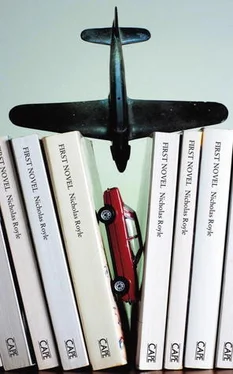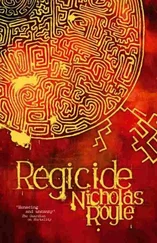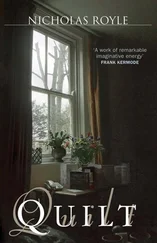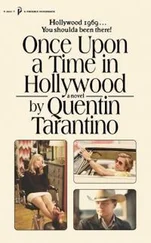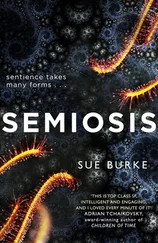We regather around the large table and Geeta reads first, a haunting and ultimately very effective piece about attraction and jealousy set in Trinidad. Lawrence Duncan — or Duncan Lawrence — reads a short but powerful scene set in a club where he tells us he has DJ’d; the action takes place the morning after a big party and features the DJ and a traumatised clubber suffering from delusions. Helen sticks her hand up next. I stop doodling on the pad in front of me and sit back and fold my arms.
Dave picks me up in his car and we drive around for a bit. He points out this and that and I smile and nod like I think he wants me to. We stop and watch the planes landing, until we’re moved on by the police, who make a big deal of searching Dave’s car, saying, Remember the Yorkshire Ripper, we don’t want to get caught out like that again. We turn into the car park of a fancy restaurant near the airport and I wonder what Dave’s got on his mind. Carpaccio of beef or a roll in the back seat. But we just sit there while Dave’s hand hovers over the gearstick and eventually he selects first gear and we are back out on the road.
It’s a world of chain-link fences and tatty scrub, razor wire and gravel. The leonine roar of aircraft engines and screech of high-pressurised rubber on runway tarmac. A world of epaulettes and wheeled suitcases and aviator sunglasses and pull on the straps to inflate.
Dave’s picturing all this as we drive slowly by, hugging the airport’s perimeter. He’s thinking ahead to the next workshop, formulating exercises. A sense of place. This is Dave’s place. I want him to take me to mine, only I don’t know what mine is. We drive north, away from the airport, pull in to the car park of a supermarket on the A34. Dave backs into a space away from the store, pulls on the handbrake and switches off the engine. The heat rising from the bonnet reminds me of a burning car I once saw in a supermarket car park, maybe this one, yes, it was this one, and it had only just caught fire because it had yet to attract a crowd of gawkers and the fire brigade were not in attendance and no one from the store was standing by speaking urgently into a mobile phone. As I watched the thick orange and yellow flames leaping from the windows of the car, windows that were either open or had blown out, flames that reminded me of graphics in a computer game, I saw an apparition through the heat haze rising from the bonnet of the vehicle. I saw a breakfast TV presenter standing alone on the far side of the flames, the only other person apart from me watching the burning car. I tried to see into the car to see if there was anyone trapped inside it, but the flames danced around too much, and when I looked up again, the TV presenter had gone.
Dave starts the engine and we roll out of the car park, heading north again. Wide roads, traffic, cars parked in driveways, stop lights, takeaways, bridges over dismantled railways lines. Nowhere that’s ever been anywhere. Street lights come on. Night falls. We turn left, go right, turn second right. We stop outside a large semi-detached Victorian house. I see the number 23 on the gatepost. There are trees in the middle of the road, more large houses on the other side. At the end of the road is a park. It’s a road of million-pound houses occupied by music producers, university professors, property developers, celebrity lawyers and TV presenters. I could live in this road, one day in the far future.
Dave puts his hand on my leg, moves it slowly up and down. I turn to look at him.
‘It goes on,’ Helen says, looking up from her notebook, ‘but I don’t want to hog the time. Lots of people have to read.’
There are murmurings of protest.
‘Aw, what’s going to happen?’
‘Come on.’
‘We want to hear all of it.’
‘Great stuff,’ I say, ‘nicely done. But as Helen says, there are lots of people to read and not much time left.’
I silence the persisting grumbles and ask Kieran to share his piece with the group. Kieran opens up his laptop and prepares to read.
Once the session is over and people are helping themselves to lunch, I check out the grid on the flip chart to see if Helen is booked in for the afternoon. She is not. She has reserved a slot on Thursday.
Instead of getting lunch, I leave Lumb Bank, taking the path that leads up the valley. I pass through deciduous woodland, the path gradually drawing closer to the river on my left. All I can hear is the tumble of the river and the occasional snippet of birdsong. A packhorse bridge takes me across the river and I start walking downstream on the other side. The path climbs away from the river and soon splits. I stand at the Y-junction and consider my options. They are few. Either left or right. Down or up. Or back. I take the right fork that leads diagonally up the hillside through the forest. After ten or fifteen minutes I realise the path is petering out. I face another choice. Either I go on or I go back. I check my watch: there should be enough time. I decide to go on. Straight ahead, the way looks difficult: outcrops of rock and increasingly dense tree cover with tangles of sharp dead growth low down on the pine trunks that would impede my progress as effectively as barbed wire. If I take a more direct approach to reaching the ridge, it will mean tackling a very steep slope, probably having to go on all fours at certain points. This is what I decide to do. Soon I am hauling myself up the steepest section by grabbing handfuls of tussocky grass and clambering the best I can. Eventually I exit the treeline and the gradient falls away. I am at the ridge. I walk for a further five minutes and I reach the sandstone bluff. I climb on to the top of this and look down across the valley to Lumb Bank on the far side. I shield my eyes; I can see a couple of people in the garden. It’s a long way, but one is almost certainly a woman, with long hair in a ponytail. Is Helen the only female student who wears her hair in a ponytail? I don’t know. The other person I’m less sure about. The size suggests it’s a woman, but there’s a mannish quality to the stance. I watch the two figures from this considerable distance, obviously without any idea what’s going on between them, but they are standing on the little rectangle of lawn, close enough to each other that they must be talking.
The afternoon’s tutorials pass off without incident and then everyone is waiting for the guest reader, who normally arrives some time between 4 and 6 p.m. Three students are in the kitchen on cooking duty; most of the others are scattered around the house and grounds writing or reading. I sit in the garden staring across the valley at the sandstone bluff, remembering standing on top of it only hours before. Out of the corner of my eye I see Grace enter the garden and immediately I slip my phone out of my pocket and hold it up to my ear.
I walk further down the garden pretending to be engaged on a call. At the end of the garden is a cottage, where the administrators are provided with accommodation, and beyond that a path leads off the property, through the woods and down the valley. As I step into the shade of the broadleaf wood, a large dark-brown bird takes off from nearby and flies away from me in a straight line between the trees going downhill. I have heard owls here at night.
When I return to the garden, Grace has disappeared but a few of the students have started drinking. Geeta asks me what time the guest reader will be arriving and I check my watch, see that it’s not far off 5 p.m. and say I’m surprised he’s not already here. By six he still hasn’t turned up and I walk up the lane to the main road with a couple of the more restless students, to see if we can see some sign of him. When we get back to the house, Nikki asks me if I have tried to call or text him. I tell her I don’t have his number. Dinner is served a little bit late, the expectation being that he will show up while we are eating. He doesn’t. By 8 p.m., everyone is gathered in the snug. It’s clear Lewis is not coming. One or two people voice their dissatisfaction. Helen asks if any of Lewis’ books are in the Lumb Bank library, in the adjoining room, and Stephen, who is writing a novel about vampires on Income Support in south Manchester, goes off to check. He comes back empty-handed and says there’s no one between Joanne Harris and M. John Harrison.
Читать дальше
